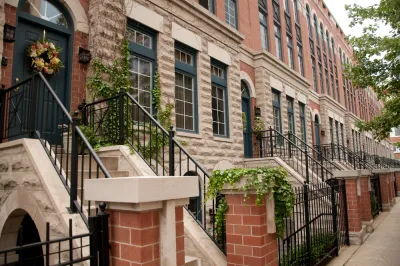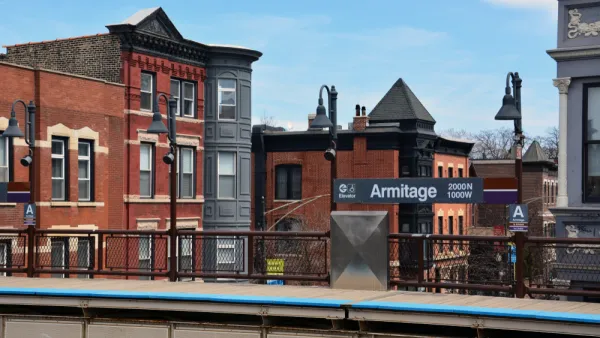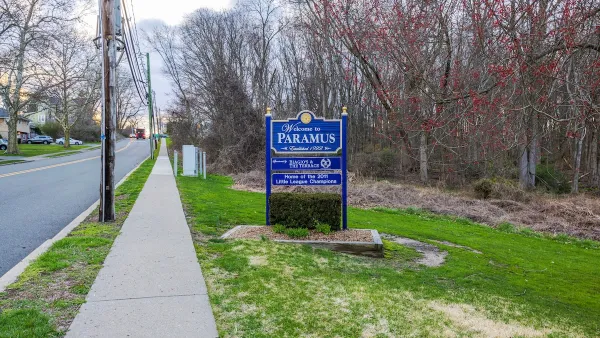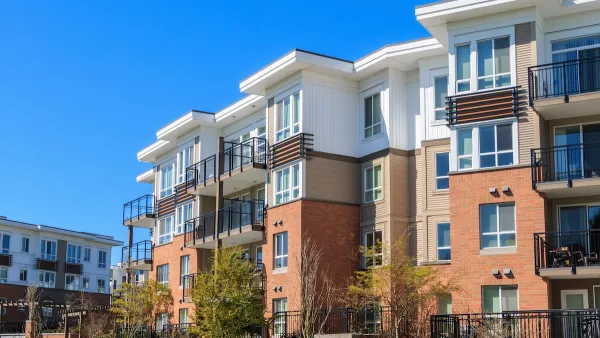A demolition fee designed to preserve affordable housing in older buildings has had some impact on the city’s housing supply.

Writing for Bloomberg CityLab, Mackenzie Hawkins describes an innovative tool wielded by anti-gentrification activists in Chicago’s Logan Square neighborhood: “a pilot ordinance that charges developers a fee of at least $15,000 for tearing down existing buildings.”
The ordinance is part of a larger group of policy recommendations being pushed by community organizers aimed at preserving affordable housing, much of which is found in Chicago’s iconic “two-flat” homes, a classic example of affordable ‘missing middle housing.’ According to Hawkins, “The loss of those units is a key displacement indicator,” making their preservation more urgent.
The demolition fee is now one of two long-term measures enacted by Chicago aldermen to preserve affordable housing. The other is “a permanent anti-deconversion ordinance” that requires developers to maintain density and apply for a permit to build single-family homes on blocks with two-flats.
The policies have yielded some positive results. “In the year after the anti-deconversion ordinance went into effect, followed two months later by the fee, the city found no deconversions in permit applications in the covered areas, compared to a reduced rate in other parts of the city. And there was a substantial drop in residential demolitions: almost 90% in The 606 area, and 40% in Pilsen, slightly outpacing slowdowns in other areas.”
The article outlines other challenges to preserving affordable two-flats, including the high cost of repairs that drive many property owners to sell and developers to demolish old buildings. Meanwhile, city programs to assist with repairs are unable to meet demand. Hawkins notes that the city is also encouraging ADU construction as another avenue to building more housing units, but much of ADU development is concentrated in the city’s wealthier neighborhoods.
FULL STORY: Chicago Taps Brakes on Gentrification With a Tax on Teardowns

Analysis: Cybertruck Fatality Rate Far Exceeds That of Ford Pinto
The Tesla Cybertruck was recalled seven times last year.

National Parks Layoffs Will Cause Communities to Lose Billions
Thousands of essential park workers were laid off this week, just before the busy spring break season.

Retro-silient?: America’s First “Eco-burb,” The Woodlands Turns 50
A master-planned community north of Houston offers lessons on green infrastructure and resilient design, but falls short of its founder’s lofty affordability and walkability goals.

Test News Post 1
This is a summary

Analysis: Cybertruck Fatality Rate Far Exceeds That of Ford Pinto
The Tesla Cybertruck was recalled seven times last year.

Test News Headline 46
Test for the image on the front page.
Urban Design for Planners 1: Software Tools
This six-course series explores essential urban design concepts using open source software and equips planners with the tools they need to participate fully in the urban design process.
Planning for Universal Design
Learn the tools for implementing Universal Design in planning regulations.
EMC Planning Group, Inc.
Planetizen
Planetizen
Mpact (formerly Rail~Volution)
Great Falls Development Authority, Inc.
HUDs Office of Policy Development and Research
NYU Wagner Graduate School of Public Service




























